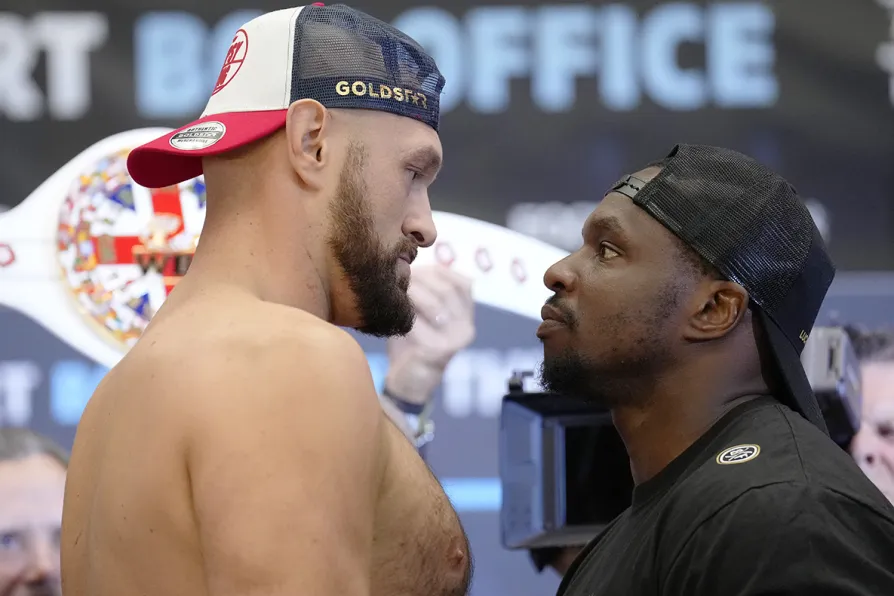From Wearside streets to rings worldwide, the boxer’s journey embodies resilience and the relentless spirit of his city, writes JOHN WIGHT

 Heavyweight boxers Tyson Fury and Dillian Whyte go head-to-head as they take part in their weigh-in at the Boxpark Wembley venue, near Wembley Stadium, in London, Friday, April 22, 2022
Heavyweight boxers Tyson Fury and Dillian Whyte go head-to-head as they take part in their weigh-in at the Boxpark Wembley venue, near Wembley Stadium, in London, Friday, April 22, 2022
DESPITE the ongoing controversy swirling around Daniel Kinahan and his involvement in top-flight boxing while allegedly running an international drug cartel and criminal organisation, said to be responsible for a raft of murders in Ireland and in Spain, there does happen to a major boxing event taking place this weekend.
Billed as The Homecoming, a sold out Wembley Stadium will host Tyson Fury’s first outing in Britain in four years, where he will face fellow Brit Dillian Whyte for the WBC title Fury ripped from the grasp of Deontay Wilder two years ago.
There is history between Fury and Whyte, what with the latter spending a significant amount of time as one of Fury’s regular sparring partners a decade ago. There is also an understandable sense of grievance on the part of Dillian Whyte, who only managed to get this shot on the back of the legal action he took against the WBC over their refusal to mandate the fight as per their obligation given that he was Fury’s WBC mandatory challenger, a position he has held for the best part of five years.

The Khelif gender row shows no sign of being resolved to the satisfaction of anyone involved anytime soon, says boxing writer JOHN WIGHT

JOHN WIGHT previews the much-anticipated bout between Benn and Eubank Jnr where — unlike the fights between their fathers — spectacle has reigned over substance











